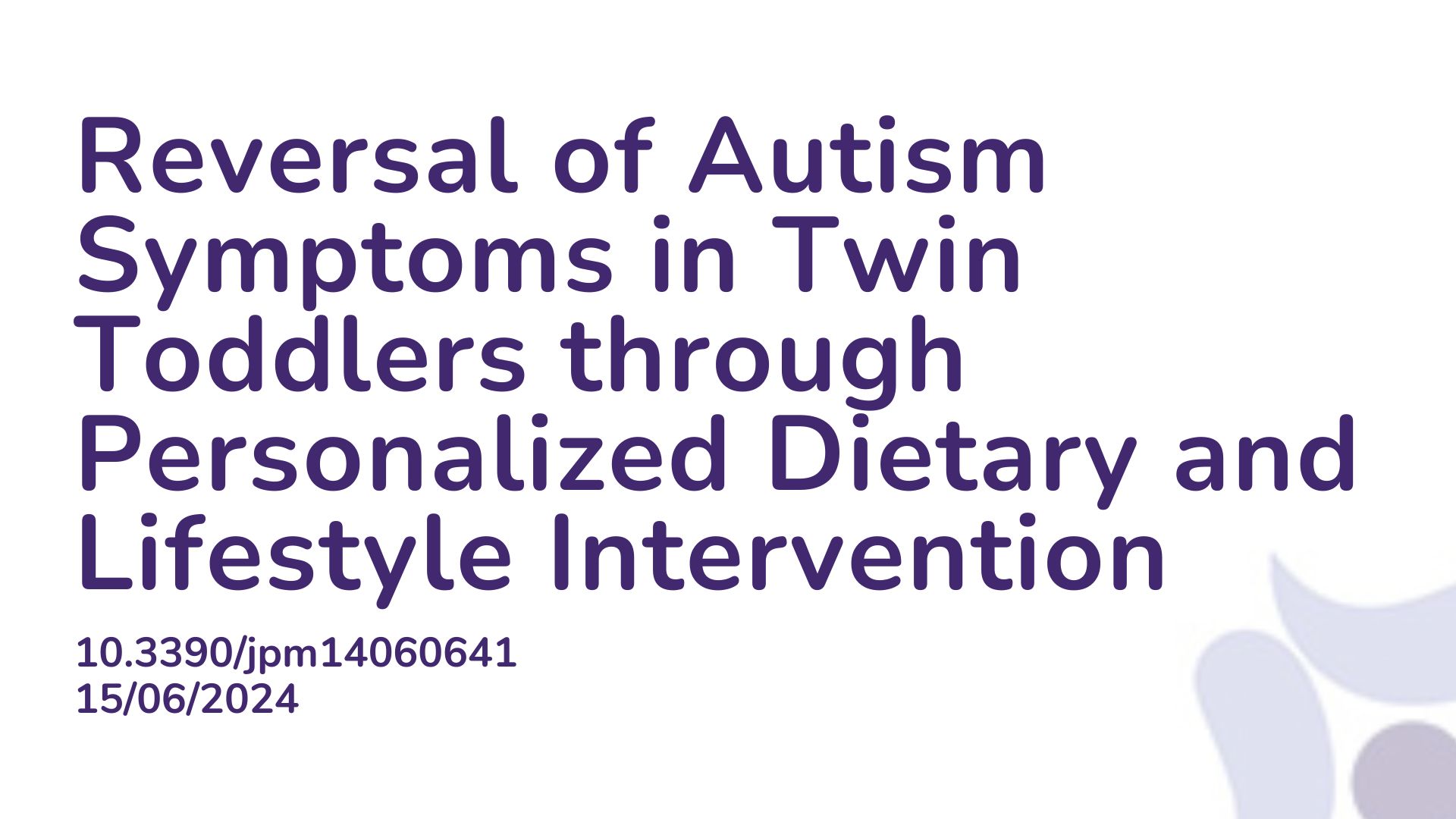Summary:
In the early 1990s, only 1 in 2,000 children in the U.S. were autistic, but by 2020, this rate surged to 1 in 36. Studies show that monozygotic twins have a 58% concordance rate for autism, compared to 21% for dizygotic twins, suggesting both genetic and environmental factors play roles. Autism spectrum disorder (ASD) can involve various health issues, including immune dysregulation, gastrointestinal problems, and mitochondrial dysfunction. Environmental factors such as toxins, poor diet, gut microbiota disruptions, and heavy metal exposure are linked to ASD risk. Few FDA-approved treatments exist, but non-pharmacological interventions, such as dietary changes (gluten-free, ketogenic diets), supplements (vitamin D), and lifestyle modifications (time in nature, reduced artificial light), show promise. While ASD reversal is rare, some cases report recovery through comprehensive, personalized non-pharmacological approaches by multidisciplinary teams. This study is a case report that describes the reversal of autism symptoms in dizygotic female twin toddlers and reviews literature on modifiable lifestyle factors, environmental exposures, and clinical approaches to treating ASD. Diagnosed with Level 3 severity ASD at around 20 months, the twins exhibited limited communication, repetitive behaviors, rigidity, and severe gastrointestinal symptoms. A multidisciplinary intervention tailored to each twin’s specific symptoms and test results was implemented by licensed clinicians, focusing on environmental and lifestyle factors such as an anti-inflammatory diet and supplements like omega-3 fatty acids, a multivitamin, vitamin D, carnitine, 5-methyltetrahydrofolate, and homeopathic remedies. Significant improvements were observed within several months. These improvements have remained stable for six months. Although more research is needed, this case provides encouraging evidence of ASD reversal through a personalized, multidisciplinary approach targeting modifiable environmental and lifestyle factors.
Abstract:
The prevalence of autism has been increasing at an alarming rate. Even accounting for the expansion of autism spectrum disorder diagnostic (ASD) criteria throughout the 1990’s, there has been an over 300% increase in ASD prevalence since the year 2000. The often debilitating personal, familial, and societal sequelae of autism are generally believed to be lifelong. However, there have been several encouraging case reports demonstrating the reversal of autism diagnoses, with a therapeutic focus on addressing the environmental and modifiable lifestyle factors believed to be largely underlying the condition. This case report describes the reversal of autism symptoms among dizygotic, female twin toddlers and provides a review of related literature describing associations between modifiable lifestyle factors, environmental exposures, and various clinical approaches to treating autism. The twins were diagnosed with Level 3 severity ASD “requiring very substantial support” at approximately 20 months of age following concerns of limited verbal and non-verbal communication, repetitive behaviors, rigidity around transitions, and extensive gastrointestinal symptoms, among other common symptoms. A parent-driven, multidisciplinary, therapeutic intervention involving a variety of licensed clinicians focusing primarily on addressing environmental and modifiable lifestyle factors was personalized to each of the twin’s symptoms, labs, and other outcome measures. Dramatic improvements were noted within several months in most domains of the twins’ symptoms, which manifested in reductions of Autism Treatment Evaluation Checklist (ATEC) scores from 76 to 32 in one of the twins and from 43 to 4 in the other twin. The improvement in symptoms and ATEC scores has remained relatively stable for six months at last assessment. While prospective studies are required, this case offers further encouraging evidence of ASD reversal through a personalized, multidisciplinary approach focusing predominantly on addressing modifiable environmental and lifestyle risk factors.
Article Publication Date: 15/06/2024
DOI: 10.3390/jpm14060641



